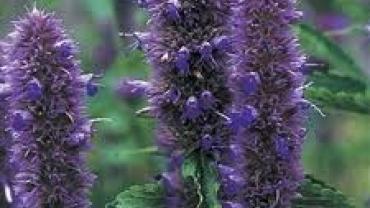
Licoricthe root that flavors popular candies has properties that go far beyond sweetness and flavor. It seems to be helpful for such a wide variety of health concerns that it belongs in your supplement drawer or medicine cabinet even more than in your candy drawer. Licorice might be one of the hardest working herbs in health care but it's also one of the most underutilized.
Licorice grows in southern Europe Asia and the Mediterranean and the dried roots play a primary role in Chinese herbalism and naturopathic medicine. Hundreds of potentially healing substances have been identified in licorice including the herb's key therapeutic compound glycyrrhizin. These compounds exert numerous beneficial effects on the body making licorice a valuable herb for helping with a host of ailments.
Diabetes
The licorice species foetida contains a group of compounds called amorfrutins. These compounds display anti-diabetic properties by not only reducing blood sugar but by also being anti-inflammatory. The amorfrutin molecules dock directly onto a receptor in a cell's nucleus called the peroxisome proliferator-activated receptor gamma (PPAR³). PPAR³ plays an important role in the cell's fat and glucose metabolism. The binding of the amorfrutin molecule to the PPAR³ receptor activates various genes that reduce the plasma concentration of certain fatty acids and glucose. The reduced glucose level prevents the development of insulin resistance which is a primary cause of adult diabetes.
Kidneys
Kidney disease is a common long-term consequence of diabetes. Beyond licorice's glucose- and lipid-modulating properties it is also a potent antioxidant. In animal models of diabetes it appears to be licorice's antioxidative quality that makes it able to protect the kidneys from oxidative tissue damage and other parameters of kidney dysfunction and injury.
Inflammation
Licorice's ability to act as an anti-inflammatory was defined in a study in which the herb inhibited the expression of inflammatory genes while also decreasing the production of the inflammatory cytokines PGE2 TNF-± and NF-B indicating its usefulness in inflammatory-mediated diseases.
Brain
Additionally licorice can also up-regulate the endogenously produced antioxidants glutathione and catalase. When looking at in vitro models of neural-differentiation licorice demonstrated neuro-protective properties that may prove helpful in neuropathological conditions.
Extracts of licorice have even been shown to have beneficial effects on memory and cognition as it enhanced learning and memory in various animal models. Being that a growing body of research now links neurodegeneration Alzheimer's disease in particular to mitochondrial dysfunction poor glucose regulation and insulin resistance it's possible that licorice's antioxidant anti-inflammatory and glucoregulation benefits present a triple threat to conditions that affect the brain.
Lungs
The pathogenesis of certain pulmonary ailments such as asthma and bronchitis are noteworthy for the associated airway inflammation linked to these types of conditions. Licorice has been shown to not only reduce airway inflammation and the tendency of infiltrates such as neutrophils and macrophages to accumulate in the bronchi but it also displays antitussive (cough-suppressing) activity as well. Therefore licorice extracts may prove to be helpful as an adjunctive pulmonary therapy.
Viruses & Bacteria
Licorice appears to be a potent antimicrobial as it has demonstrated efficacy in combating a variety of viruses such as HIV-1 Hepatitis C and SARS-related coronavirus bacteria including MRSA and yeast such as candida
PCOS
Excess androgen production is a hallmark of polycystic ovary syndrome (PCOS). One proposed mechanism may be inappropriate cortisol metabolism. Licorice was shown to block testosterone by inhibiting the activity of 17-hydroxysteroid dehydrogenase the primary enzyme responsible for the conversion of androstenidione to testosterone. Licorice may therefore be a useful therapeutic herb in those women suffering with PCOS.
PCOS is also well recognized as being associated with hyperinsulinemia in women of reproductive age so the glucose (and therefore insulin) lowering effects of licorice might be another mechanism behind the roots benefits for this condition.
Cancer
Finally no review of licorice would be complete without briefly mentioning licorice's anti-cancer properties. Licorice has been shown to be liver-protective in those with Hepatitis C by reducing the risk of developing subsequent liver cancer. Licorice has also been shown to induce apoptosis in stomach prostate and leukemia cells as well.
Other uses for licorice include its utility as an adrenal support herb and its protection against ulcers. It's important to note however that glycyrrhizin the active compound in licorice contributes to adrenal function by supporting the adrenal gland's role in regulating blood pressure while on the other hand the glycyrrhizin is removed from licorice extracts that are designed to support gastric and intestinal healing (known as DGL or deglycyrrhizinated licorice). Licorice has also shown potential as a lipid modulator and in weight loss support. The latter effect is likely another outcome of enhanced blood glucose control.
Because of licorice's wide range of effects always check for contraindications with other herbs supplements and pharmaceuticals before introducing it into a patient's regimen.